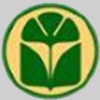doi: 10.15389/agrobiology.2018.2.293eng
UDC 636.018:612.017.1:616-056.43
AUTOIMMUNITY AND THE ENDOGENOUS HORMONE PROFILES OF BULL SIRES
A.I. Abilov1, N.A. Kombarova2, V.S. Mymrin3, S.V. Mymrin3, A.A. Gudilina3,
E.A. Pyzhova4
1Ernst Federal Science Center for Animal Husbandry, Federal Agency of Scientific Organizations, 60, pos. Dubrovitsy, Podolsk District, Moscow Province, 142132 Russia, e-mail ahmed.abilov@mail.ru (✉ corresponding author);
2Head Center for Reproduction of Farm Animals AO, 3, ul. Tsentralnaya, pos. Bykovo, Podolsk Region, Moscow Province, 142143 Russia, e-mail komnina@list.ru;
3Uralplemcentr OAO, 21 km, Siberian tract, Ekaterinburg, 620913 Russia, e-mail uralplem@mail.ru;
4Russian Academy of Livestock Management, 9, ul. Akademicheskaya, pos. Bykovo, Podolsk Region, Moscow Province, 142143 Russia, e-mail elena@ramj.ru
ORCID:
Abilov A.I. orcid.org/0000-0001-6236-8634
Pyzhova E.A. orcid.org/0000-0001-5719-3075
Kombarova N.A. orcid.org/0000-0003-3861-4465
Received December 20, 2017
Morpho-functional changes in reproductive organs of bulls due to the influence of continental climate with cold winters and hot summers can repress reproductive function (I.M. Donnik et al., 2005). It requires a deep knowledge of immunobiological, hormonal and biochemical mechanisms regulating the reproductive function in animals, with regard to their adaptability to various environmental and farming conditions (I.M. Donnik et al., 2015). Here, we compared for the first time the autoimmune state of domestic- and foreign-bred Holstein bull sires aged 3 to 9 years (n = 101) which were housed in two ecologically different regions, the Moscow Province (Head Center for Reproduction of Farm Animals) and the Sverdlov Province (Uralplemcenter, Regional Information and Selection Center). Autoimmunity detected by sperm immobilization test was unidentified in 69 % and 83 % of bull sires from the Sverdlov Region and the Moscow Province, respectively. The percentages of bulls with a high titer (> 1:8) of sperm immobilization comprised 3 % and 8 % in the Sverdlov Region and the Moscow Region, respectively. At the titers of approximately 1:4, the autoimmune anti-sperm state of the animals was reversible and easily restored following recommended technologies during two cycles of spermatogenesis. A comparatively high titer was recorded during more intense exploitation of bulls. The Holstein bulls of different origin also differed in susceptibility to developing the autoimmune anti-sperm response. The sires of the Canadian selection were more susceptible, while the lowest-level autoimmunity was characteristic of the Holland bulls. Endogenous hormone levels correlated with the autoimmunity: in case of the titer elevation, the endogenous hormone concentrations decreased, but unequally, i.e. by 38 % and 46 % for testosterone and estradiol, respectively. The variations in correlation between testosterone and estradiol could reach 49 %. The percentage of animals with the titers of 1:4 to 1:8 was higher among the young bull sires aged 28 months, while the anti-sperm antibodies were not revealed or autoimmunity was weakly expressed in the mature bulls aged 35 months, with the titers of 0 to 1:2. Therefore, the young bulls at the start of their intensive use are more susceptible to various impacts as compared to the pubertal sires.
Keywords: autoimmunity, bull sires, testosterone, estradiol, thyroxin.
REFERENCES
- Wade G.N., Schneider J.E., Li H.Y. Control of fertility by metabolic cues. Am. J. Physiol., 1996, 270(1 Pt 1): E1-19 CrossRef
- Donnik I.M., Bol'shakov V.N. V sbornike: Nauchnye osnovy profilaktiki i lecheniya boleznei zhivotnykh [In: Fundamentals of preventing diseases and animal therapy]. Moscow, 2005: 433-443 (in Russ.).
- Shulman S., Hu C.Y. A study of the detection of sperm antibody in cervical mucus with a modified immunobead method. Fertil. Steril., 1992, 58(2): 387-391 CrossRef
- Francavilla F., Romano R., Santucci R. Effect of sperm-antibodies on acrosome reaction of human sperm used for the hamster egg penetration assay. Am. J. Reprod. Immunol., 1991, 25(2): 77-80 CrossRef
- Seliverstov V.V., Shakhov F.G. Korrektsiya ekologo-adaptatsionnoi teorii vozniknoveniya, razvitiya massovoi patologii i zashchity zdorov'ya zhivotnykh v sel'skokhozyaistvennom proizvodstve [Revision of eco-adaptation theory of origin and development ща mass pathologies, and animal health protection in commercial farming]. Moscow, 2000 (in Russ.).
- Davidson A., Diamond B. Autoimmune diseases. N. Engl. J. Med., 2001, 345(5): 340-350 CrossRef
- Bozhedomov V.A., Loran O.B., Sukhikh G.T. Andrologiya i genital'naya khirurgiya, 2001, 1: 72-77 (in Russ.).
- Bohring C., Krause E., Habermann B., Krause W. Insolation and identification of sperm membrane antigens recognized by antisperm antibodies, and their possible role in immunological infertility disease. Mol. Hum. Reprod., 2001, 7(2): 113-118.
- Lombardo F., Gandini L., Lenzi A., Dondero F. Antisperm immunity in assisted reproduction. J. Reprod. Immunol., 2004, 62(1-2): 101-109 CrossRef
- Clarke G. Etiology of sperm immunity in women. Fertil. Steril., 2009, 91(2): 639-643 CrossRef
- Dimitrov D.G., Urbanek V., Zverina J., Madar J., Nouza K., Kinsky R. Correlation of asthenozoospermia with increased antisperm cell-mediated immunity in men from infertile couples. J. Reprod. Immunol., 1994, 27: 3-12 CrossRef
- Dimitrov D.G., Petrovska M. Effects of products of activated immune cells and recombinant cytokines on spontaneous and ionophore-induced acro-some reaction. Am. J. Reprod. Immunol., 1996, 36(3): 150-156 CrossRef
- Walsh T.J., Turek P.J. Immunologic infertility. In: Infertility in the male. 4th ed. L.I. Lipshuitz, S.S. Howards, C.S. Niederberger (eds.). Cambridge University Press, Cambridge, 2009: 277-294 CrossRef
- Kurpisz M., Havryluk A., Nakonechnyj A., Chopyak V., Kamieniczna M. Cryptorchidism and long-term consequences. Reprod. Biol., 2010, 10(1): 19-35 CrossRef
- Omu A.E., al-Qattan F., Mohammed A. Expression of human leukocyte antigens in patients with autogenic and allogenic circulating antisperm antibodies. Archives of Andrology, 1996, 37(3): 155-162.
- Check J.H. The infertile male — diagnosis. Clinical and Experimental Obstetrics & Gynecology, 2006, 33(3): 133-139.
- Lee R., Goldstein M., Ullery B., Ehrlich J., Soares M., Razzano R., Herman M., Callahan M., Li P., Schlegel P., Witkin S. Value of serum antisperm antibodies in diagnosing obstructive azoospermia. J. Urology, 2009, 181(1): 264-269 CrossRef
- Naz R.K. Modalities for treatment of antisperm antibody mediated infertility: novel perspectives. Am. J. Reprod. Immunol., 2004, 51(5): 390-397 CrossRef
- Bohring C., Krause W. The role of antisperm antibodies during fertilization and for immunological infertility. Chem. Immunol. Allergy, 2005, 88: 15-26 CrossRef
- Kombarova N.A., Abilov A.I. Molochnoe i myasnoe skotovodstvo, 2009, 3: 30-32 (in Russ.).
- Argunov M.N., Mel'nikova N.V. Materialy I S’ezda veterinarnykh farmakologov Rossii [Proc. I Congress of Russia Veterinary Pharmacologists]. Voronezh, 2008: 88-90 (in Russ.).
- Shakhov A.G. Ekologicheskie problemy patologii, farmakologii i terapii zhivotnykh [Ecological aspects of animal pathology, pharmacology and therapy]. Voronezh, 1997 (in Russ.).
- Topuriya G.M., Topuriya L.Yu. Veterinariya Kubani, 2011, 1: 22-23 (in Russ.).
- Kochetkov A.A., Abilov A.I., Tag T.A. Specificity of methods for revealed of sensitization against different nature antigens of ejaculates. J. Reprod. Immunol., 1989, 15(Suppl. 1): 133 CrossRef
- Abilov A.I., Tag T.A. Bulls autoimmunity: Relationship with protein-vitamin A deficiency and its removed. J. Reprod. Immunol., 1989, 15(Suppl. 1): 51 CrossRef
- Sokolovskaya I., Radchenkov V., Bronskaya A., Oyvadis R., Abilov A., Tag T., Solovyov N., Subbotin A., Oshadchuk V. The significance of female's immune reactions on foetus at pregnancy. I. The prenatal livability at experimental blockading of pregnant female's immune. J. Reprod. Immunol., 1983, 5(Suppl. 1): 72 CrossRef
- Madar J., Urbanek V., Chaloupkova A., Nouza K., Kinsky R. Role of sperm antibodies and cellular of male to sperm in the pathologenesis of male infertility. Ceska Gynekologie, 2002, 67(1): 3-7.
- Yarnykh A.L., Vorokhobina N.V., Khokhlov P.P., Gzgzyan A.M. Meditsinskaya immunologiya, 2002, 4(2): 217-218 (in Russ.).
- Abilov A.I., Amerkhanov Kh.A., Eskin G.V., Fedorova E.V., Zhavoronkova N., Kombarova N.A., Varennikov M.V. Zootekhniya, 2013, 9: 25-28 (in Russ.).
- Shiraishi Y., Shibahara H., Koriyama J., Hirano Y., Okazaki H., Minota S., Suzuki M. Incidence of anti-sperm antibodies in males with systemic autoimmune diseases. Am. J. Reprod. Immunol., 2009, 61(3): 183-189 CrossRef
- Nikolaeva M.A. Rossiiskii immunologicheskii zhurnal, 2005, 9(2): 56-60 (in Russ.).













